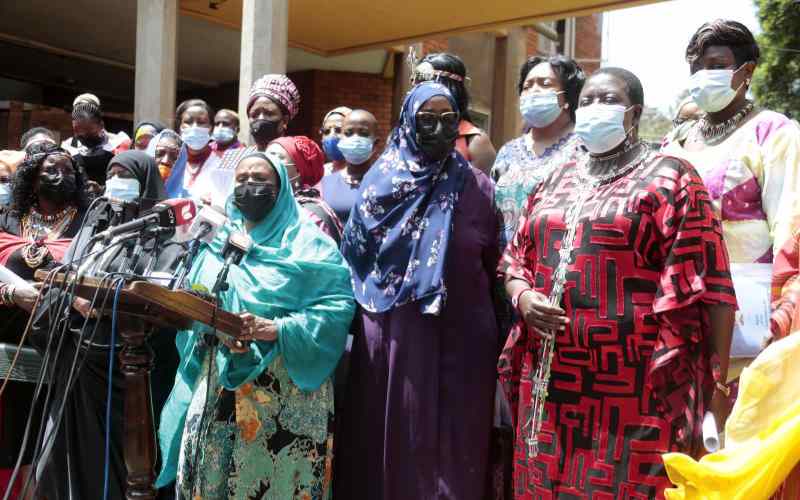
The handshake heralded a new era of politics. Of course, the 'handshakers' were men but we are happy to hear of the roles women played behind the scenes. Women leaders saw the moment for what it was, a moment for communities to come together and build bridges.
After years of pursuing implementation of the two-thirds gender rule, women knew the handshake provided a critical opportunity thus the quest to build gender bridges as well. Many women leaders endorsed the handshake for ushering in peace and tranquility. Women leaders visited Mama Pendo in her Nyalenda home. At the BBI launch, her message was clear. No mother should a lose baby to election skirmishes and violence as she did.